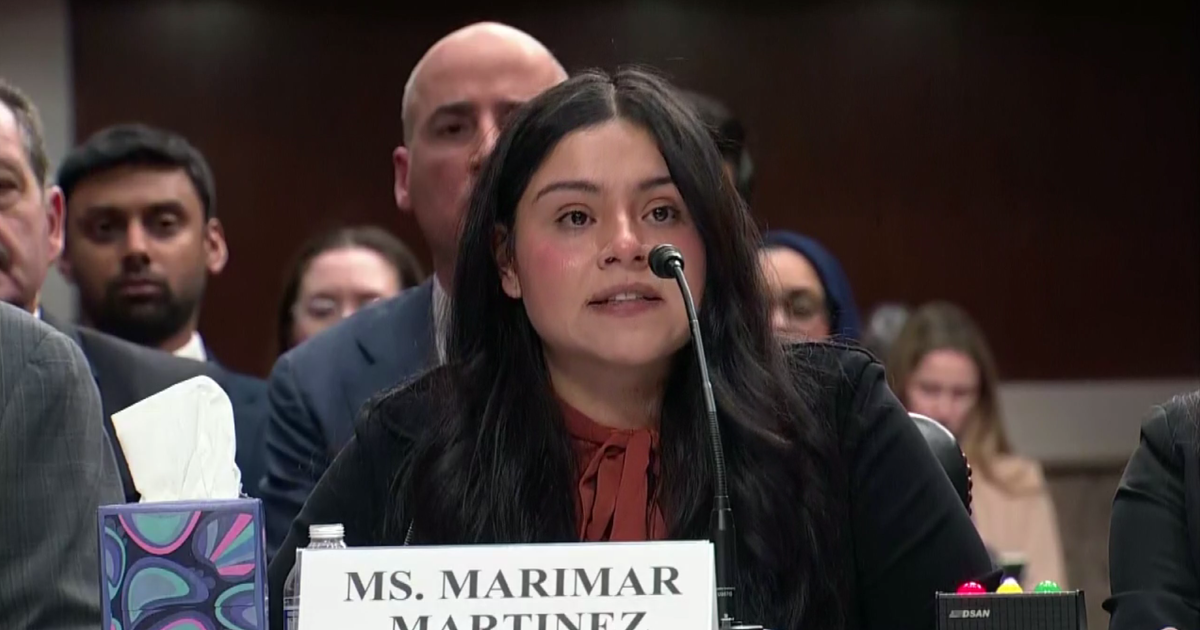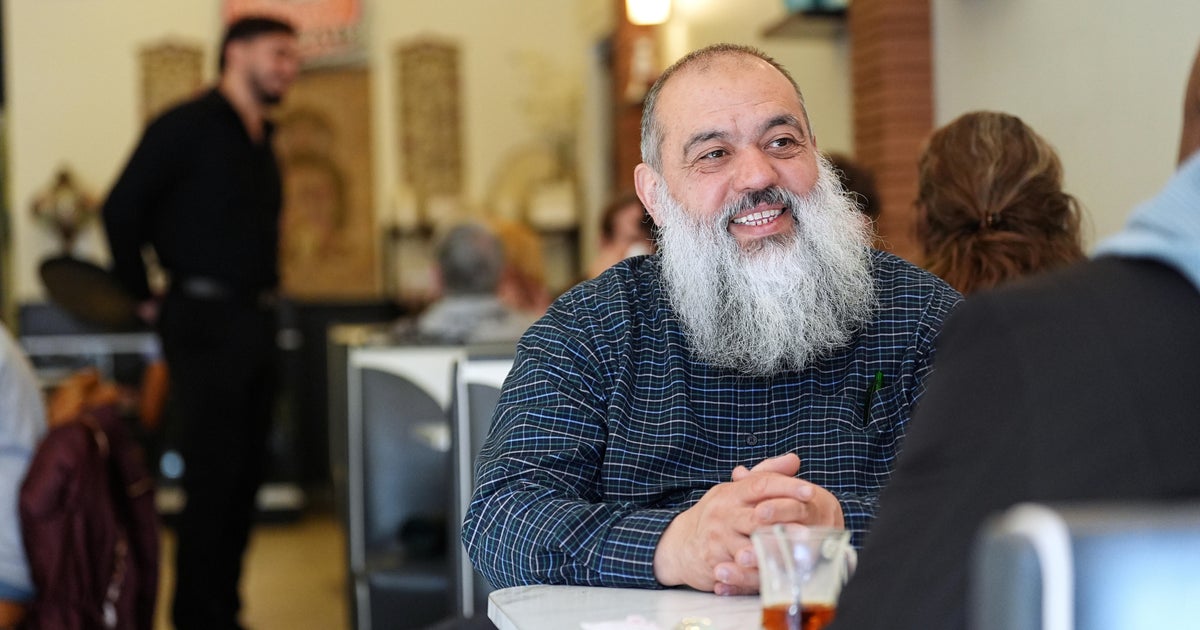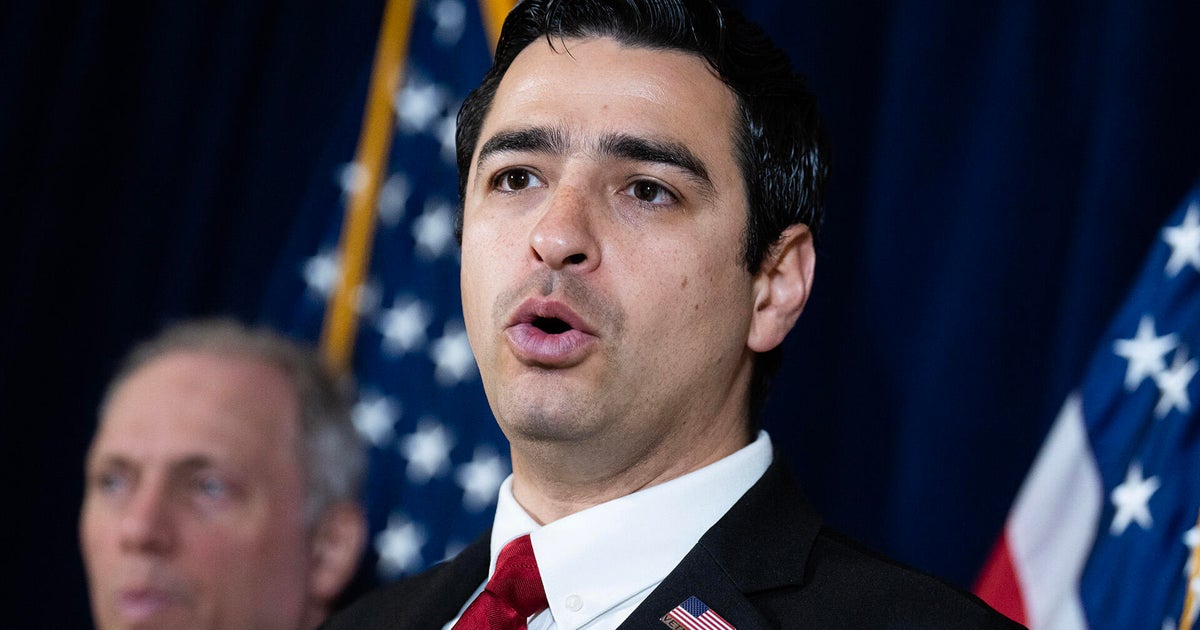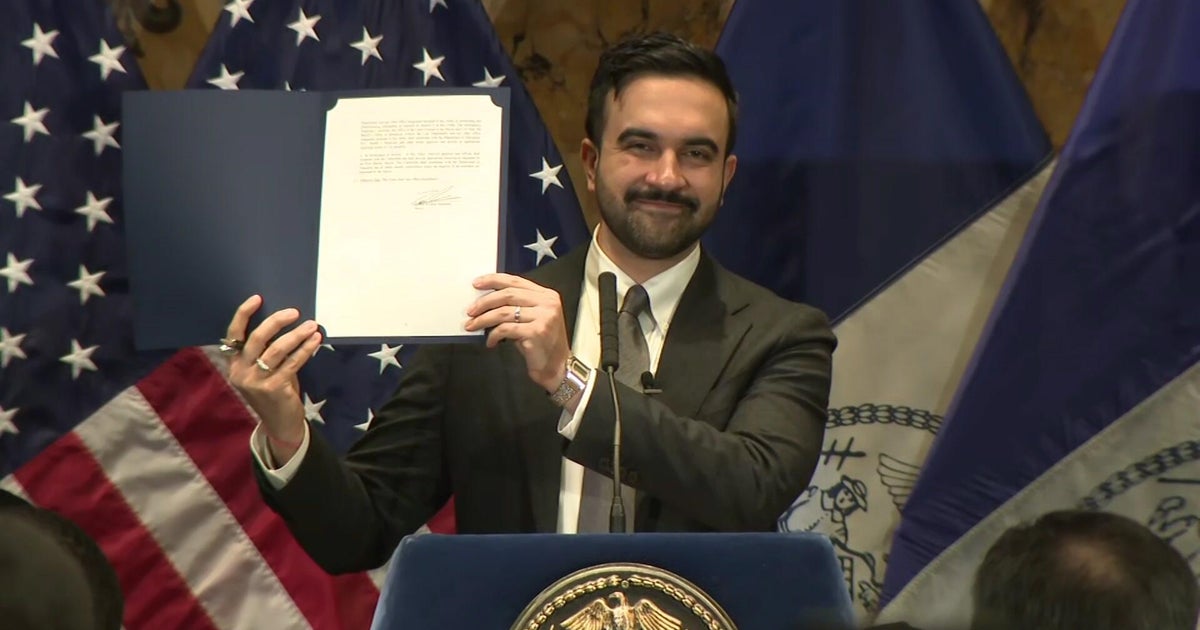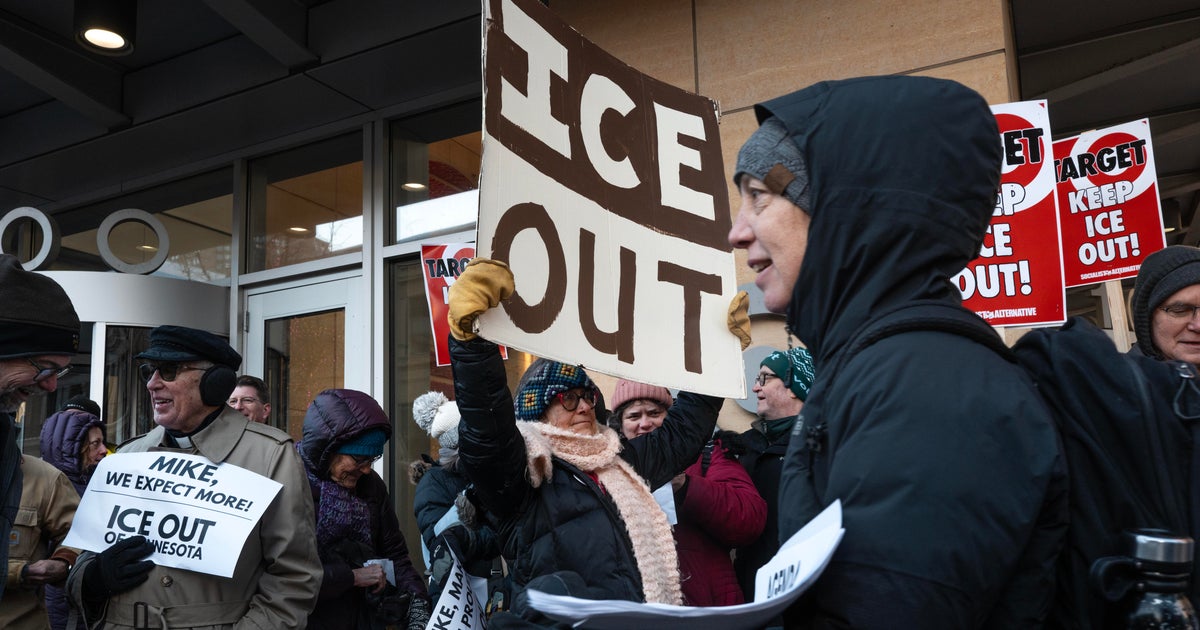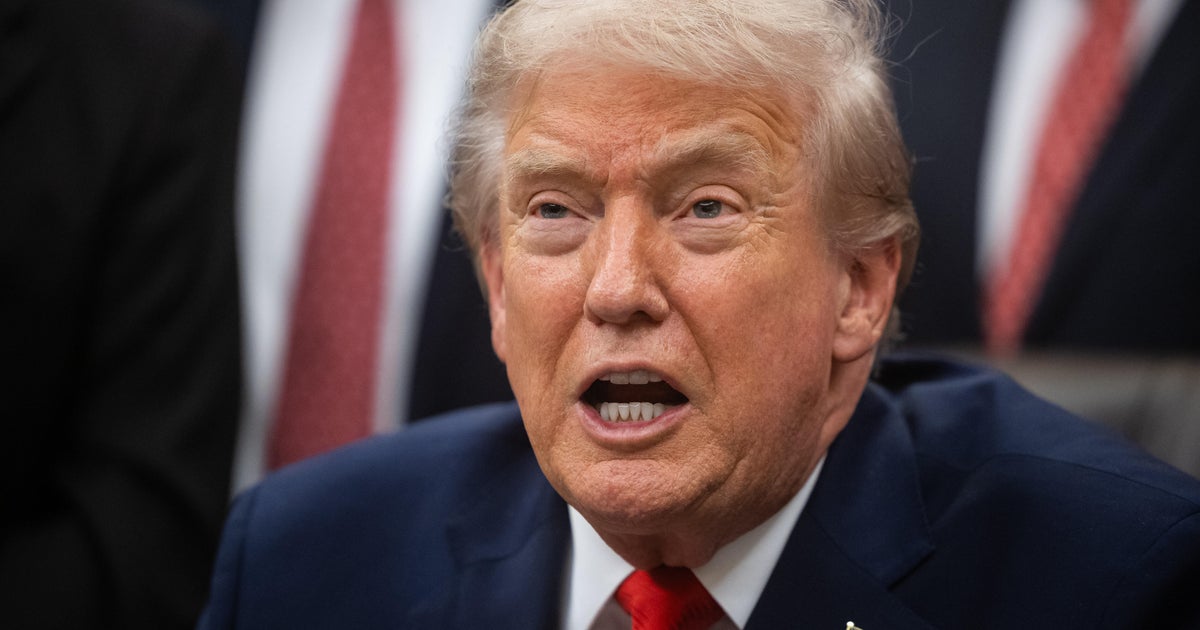Trump Calls For Unity On Immigration In State Of The Union
WASHINGTON (AP) — Addressing a deeply divided nation, President Donald Trump called upon lawmakers Tuesday night to "summon the unity" to make good on long-standing promises to fix the nation's crumbling infrastructure and fractured immigration systems, infusing his presidency with a sense of optimism, for at least one high-profile night.
"To every citizen watching at home tonight, no matter where you have been, or where you come from, this is your time," Trump declared in his State of the Union address. "If you work hard, if you believe in yourself, if you believe in America, then you can dream anything, you can be anything, and together, we can achieve anything."
Despite his calls for bipartisanship, Trump spoke with tensions running high on Capitol Hill. An impasse over immigration prompted a three-day government shutdown earlier this year, and lawmakers appear no closer to resolving the status of the "Dreamers" — young people living in the U.S. illegally ahead of a new Feb. 8 deadline for funding operations. The parties have also clashed this week over the plans of Republicans on the House intelligence committee to release a classified memo on the Russia investigation involving Trump's presidential campaign — a decision the White House backs but the Justice Department is fighting.
The controversies that have dogged Trump — and the ones he has created— have overshadowed strong economic gains during his first year in office. His approval ratings have hovered in the 30s for much of his presidency, and just 3 in 10 Americans said the United States was heading in the right direction, according to a poll by The Associated Press-NORC Center for Public Affairs Research. In the same survey, 67 percent of Americans said the country was more divided because of Trump.
At times, Trump's address appeared to be aimed more at validating his first year in office than setting the course for his second. He devoted significant time to touting the tax overhaul he signed at the end of last year, promising the plan will "provide tremendous relief for the middle class and small businesses." He also highlighted the decision made early in his first year to withdraw the U.S. from a sweeping Asia-Pacific trade pact, declaring: "The era of economic surrender is totally over."
He spoke about potential agenda items for 2018 in broad terms, including a call for $1.5 trillion in new infrastructure spending and partnerships with states and the private sector. He touched only briefly on issues like health care that have been at the center of the Republican Party's policy agenda for years.
Tackling the sensitive immigration debate that has roiled Washington, Trump redoubled his recent pledge to offer a path to citizenship for 1.8 million young immigrants — as part of a package that would also require increased funding for border security, including a wall along the U.S.-Mexico border, ending the nation's visa lottery method and revamping the current legal immigration system. Some Republicans are wary of the hardline elements of Trump's plan and it's unclear whether his blueprint could pass Congress.
Trump played to the culture wars, alluding to his public spat with professional athletes who led protests against racial injustice by kneeling during the national anthem, declaring that paying tribute to the flag is a "civic duty."
Republicans led multiple rounds of enthusiastic applause during the speech, but for the opposition party it was a more somber affair. Democrats provided a short spurt of polite applause for Trump as he entered the chamber, but offered muted reactions throughout the speech. A cluster of about two dozen Democrats, including members of the Congressional Black Caucus, remained planted firmly in their seats, staring sternly at the president and withholding applause.
After devastating defeats in 2016, Democrats are hopeful that Trump's sagging popularity can help the party rebound in November's midterm elections. In a post-speech rebuttal, Massachusetts Rep. Joe Kennedy, the grandson of Robert F. Kennedy, was seeking to undercut Trump's optimistic tone and remind voters of the personal insults and attacks often leveled by the president.
"Bullies may land a punch," Kennedy said, according to excerpts from his remarks. "They might leave a mark. But they have never, not once, in the history of our United States, managed to match the strength and spirit of a people united in defense of their future."
On international affairs, Trump warned of the dangers from "rogue regimes," like Iran and North Korea, terrorist groups, like the Islamic State, and "rivals" like China and Russia "that challenge our interests, our economy and our values." Calling on Congress to lift budgetary caps and boost spending on the military, Trump said that "unmatched power is the surest means of our defense."
The president also announced that he had signed an executive order directing the Department of Defense to keep open the U.S. prison at Guantanamo Bay. The order reverses the Obama-era policy of the executive branch, long stymied by Congress, to close the prison.
First lady Melania Trump, who has largely stayed out of the spotlight following the latest allegations of Trump infidelity, arrived at the capitol ahead of her husband to attend a reception with guests of the White House. Those sitting alongside the first lady included an Ohio welder who the White House says will benefit from the new tax law and the parents of two Long Island teenagers who were believed to have been killed by MS-13 gang members.
Follow @CBSBaltimore on Twitter and like WJZ-TV | CBS Baltimore on Facebook
(© Copyright 2018 The Associated Press. All Rights Reserved. This material may not be published, broadcast, rewritten or redistributed.)
